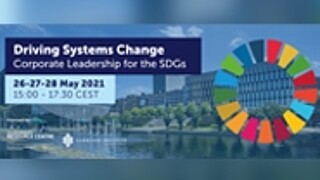The RSM case Managing lean success: a warehouse balancing act (A) & (B) looks at the challenges of CEVA Logistics, in remaining true to its lean management principles and sustainability commitments of worker-centric operations while trying to meet important new customer’s demanding requirements as well as attracting and retaining qualified employees in an unfavourable business environment.
Valuable for business
The award-winning case is targeted at master students in MSc or MBA programmes and executive students of supply chain management, operations management, logistics, organisational behaviour, leadership, or human resources management. It can also be used for teaching sustainability and general strategic management.
“A case like this is valuable to students as well as to managers because it combines business process analysis with human behaviour analysis, inviting users to think about potential behavioural consequences of decisions in the entire domain of operations management,” says Tao Yue, managing editor at RSM’s Case Development Centre.
Professor René de Koster, who wrote the case in collaboration with RSM CDC case writers and CEVA Logistics and with input from Professor Rob van Tulder, says: “This case is about a large logistics service provider struggling to balance its core values focusing on employee-centric operations with highly volatile demand and productivity pressure from customers, all with short-termed contracts, in an extremely competitive landscape. The case is useful in courses focusing on how to deal with such trade-offs, how to handle cultural differences, and how long-term human-centric operations might prevail over short-term benefits.”
The jury, which was made up of the director and team of mayoral continuous improvement chair of San Telmo Business School in Spain, said the case is a very good example of continuous improvement. They were impressed with the case because it:
- gives the idea that lean management is not about tools but behaviour, and it conveys that it is more like a philosophy than a technical question
- raises a much-needed debate between directive leadership and transformational leadership
- allows a great diversity of pedagogical objectives (lean, leadership, sustainability), which gives it great flexibility and will be frequently used for different programmes and areas.
Sustainable Development Goals
The topic of the case shows that RSM SDG cases are valuable for universities and for industries that seek to integrate sustainability with business efficiency. The case is part of the UN Sustainable Development Goals (SDGs) case series developed by RSM. It focuses on SDG 8 (decent work and economic growth), and also addresses several other related SDGs.
“The case is also timely, as it asks an important question facing many Western logistics companies: how to manage a low-skilled labour force at a time when the logistics industry is undergoing transitions due to the changing economic and political situation and the trend of automation?” said Tao Yue.
EFMD Case Writing Competition
EFMD is a global, non-profit, membership-driven organisation dedicated to management development. It is recognised globally as an accreditation body for business schools, business school programmes, and corporate universities. The EFMD Case Writing Competition, which has been organised annually since 1988, rewards innovative cases in management development, case writing, teaching and student engagement. The judging panel reviews more than 400 cases each year for the 17 award categories, all representing critical managerial areas.
The Case Development Centre
Business cases developed and written by the Case Development Centre (CDC) at RSM are used as teaching aids by businesses and by management schools worldwide. Business cases are developed by working closely with academia and businesses. The cases bring first-hand knowledge of business practices to management education as well as other businesses, and are an effective way of communicating management theory to business practitioners. They are published through reputable outlets such as The Case Centre and Ivey Publishing, as well as popular media channels such as the Financial Times and Harvard Business Review.








